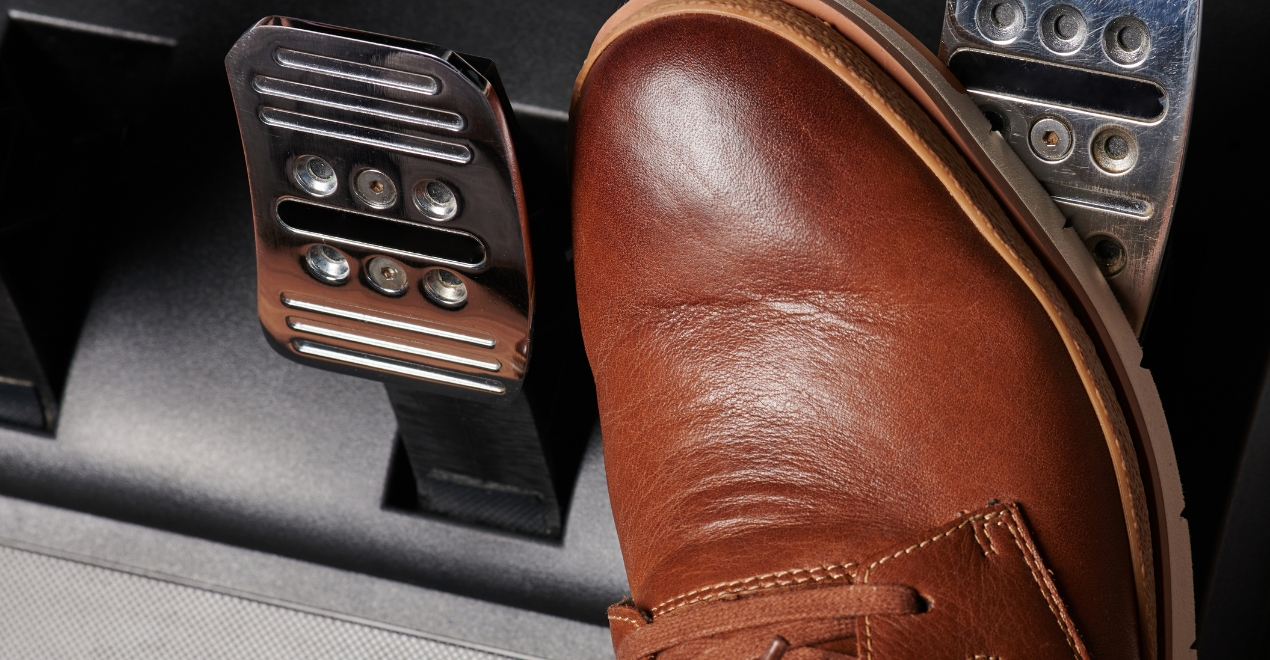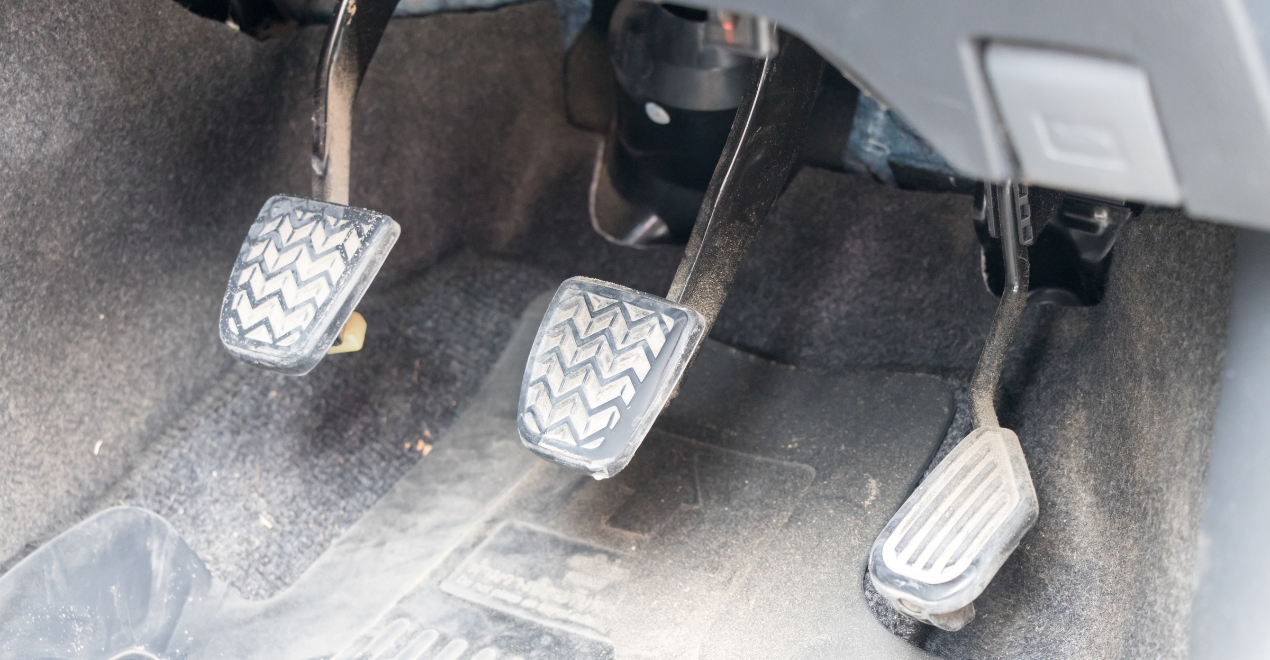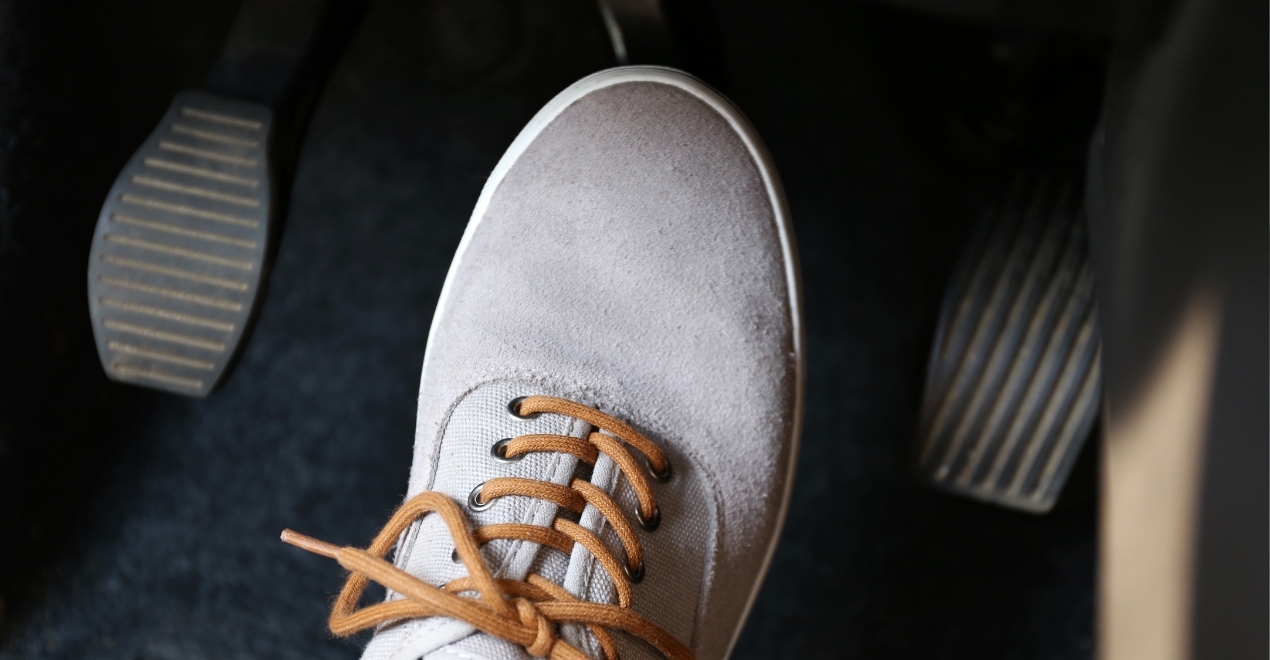Experiencing a stuck gas pedal can be a terrifying ordeal for any driver. It can lead to dangerous situations, panic, and in some cases, severe accidents. Understanding the reasons behind a sticking gas pedal is crucial not only for addressing the problem but also for preventing it from happening in the future. In this article, we’ll explore the various causes of a stuck gas pedal, the immediate actions you should take if it happens, and how to prevent it. This comprehensive guide will provide you with detailed insights into one of the most critical issues that can affect your vehicle’s performance and your safety on the road. Experiencing issues with your gas pedal? Contact Crossroads Helpline for expert advice and assistance today!
Table of Contents
ToggleMechanical Issues

One of the primary reasons your gas pedal might get stuck is due to mechanical issues within the vehicle. Over time, components of the throttle system can wear out, become misaligned, or even break. Here are some specific mechanical causes:
Throttle Cable Problems: Older vehicles, in particular, rely on a physical cable to connect the gas pedal to the throttle body. If this cable becomes frayed, stretched, or gets caught on something, it can cause the gas pedal to stick. Regular inspections and maintenance of the throttle cable can help prevent this issue.
Faulty Throttle Body: The throttle body controls the amount of air entering the engine. If it becomes dirty, clogged, or otherwise malfunctions, it can prevent the gas pedal from moving freely. Cleaning or replacing the throttle body can resolve this problem.
Damaged Pedal Assembly: The gas pedal itself can become damaged or misaligned, particularly if it has been subjected to physical stress or impact. Inspecting the pedal assembly for any visible signs of damage and ensuring it is properly aligned and lubricated can help prevent sticking.
Obstructions: Foreign objects can sometimes get lodged in the pedal assembly or in the area surrounding it. Small items like floor mats, debris, or even loose parts can obstruct the movement of the gas pedal. Regularly cleaning the footwell area can help prevent this issue.
Electrical and Sensor Issues
Modern vehicles often use electronic systems to control the throttle. While these systems are generally reliable, they are not immune to problems. Electrical and sensor issues can cause the gas pedal to stick, leading to potential safety hazards.
Faulty Throttle Position Sensor (TPS): The TPS monitors the position of the throttle and sends this information to the vehicle’s engine control unit (ECU). If the sensor fails or provides incorrect data, the ECU might not properly control the throttle, causing the pedal to stick. Replacing a faulty TPS can resolve this issue.
Electronic Throttle Control (ETC) Malfunctions: Many newer vehicles use an ETC system, which relies on various sensors and electronic signals to control the throttle. Issues with the ETC system, such as software glitches, faulty wiring, or sensor failures, can cause the gas pedal to stick. Diagnosing and repairing ETC malfunctions typically requires specialized equipment and expertise.
Battery and Electrical System Problems: A weak or failing battery, poor connections, or issues with the vehicle’s electrical system can affect the performance of the throttle control system. Ensuring that the battery and electrical components are in good condition can help prevent these problems.
Manufacturer Recalls and Defects

Vehicle recalls and defects are another significant factor that can lead to a stuck gas pedal. Manufacturers may issue recalls for specific models due to design flaws, defective parts, or other issues that can cause the gas pedal to malfunction.
High-Profile Recalls: Several high-profile recalls have been issued in the past due to gas pedal issues. For example, Toyota recalled millions of vehicles between 2009 and 2011 due to problems with floor mats trapping the gas pedal and mechanical failures within the pedal assembly. Staying informed about recalls affecting your vehicle can help you address potential issues before they become serious.
Checking for Recalls: It’s important to regularly check if your vehicle is subject to any recalls. You can do this by visiting the National Highway Traffic Safety Administration (NHTSA) website or the manufacturer’s website. Enter your vehicle identification number (VIN) to see if there are any active recalls that need to be addressed.
Responding to Recalls: If your vehicle is affected by a recall, take immediate action to have the necessary repairs or replacements performed. Ignoring recalls can result in continued risks and potential liability in the event of an accident.
Immediate Actions to Take If Your Gas Pedal Gets Stuck
If you find yourself in a situation where your gas pedal is stuck, it’s essential to remain calm and take immediate steps to regain control of your vehicle. Here are the actions you should take:
Stay Calm and Avoid Panic: Panicking can lead to rash decisions that might worsen the situation. Try to stay as calm as possible and focus on taking the following steps.
Shift to Neutral: Shifting your vehicle into neutral can disengage the engine from the wheels, allowing you to slow down and come to a stop safely. This step is crucial in preventing further acceleration.
Use the Brakes: Apply the brakes firmly but steadily. Avoid pumping the brakes, as this can reduce braking effectiveness. In vehicles with anti-lock braking systems (ABS), steady pressure will allow the system to work correctly.
Turn Off the Engine: If shifting to neutral and braking are not sufficient to bring your vehicle to a stop, you may need to turn off the engine. Be aware that doing so will disable power steering and power brakes, making it more difficult to control the vehicle.
Pull Over Safely: Once you have managed to slow down or stop the vehicle, steer to the side of the road or a safe location away from traffic. Use your hazard lights to alert other drivers.
Preventive Measures and Maintenance

Preventing a stuck gas pedal involves regular maintenance and being proactive about addressing potential issues. Here are some preventive measures you can take:
Regular Inspections: Have your vehicle inspected regularly by a qualified mechanic. Pay particular attention to the throttle system, pedal assembly, and any electronic components related to throttle control.
Clean the Throttle Body: Over time, the throttle body can become clogged with carbon deposits and other debris. Regular cleaning can help ensure it operates smoothly.
Replace Worn Parts: If you notice any signs of wear or damage to components such as the throttle cable, pedal assembly, or sensors, have them replaced immediately.
Check for Recalls: Stay informed about any recalls affecting your vehicle and respond promptly to have any necessary repairs performed.
Avoid Obstructions: Ensure that the footwell area is free of obstructions, such as loose floor mats or debris, that could interfere with the gas pedal.
Conclusion
A stuck gas pedal is a serious issue that requires immediate attention and action. Understanding the various causes, from mechanical problems to electronic malfunctions and manufacturer defects, is crucial for both addressing and preventing this problem. Regular maintenance, staying informed about recalls, and knowing what to do in an emergency can help you stay safe on the road. By being proactive and vigilant, you can minimize the risks associated with a stuck gas pedal and ensure a safer driving experience for yourself and others.

